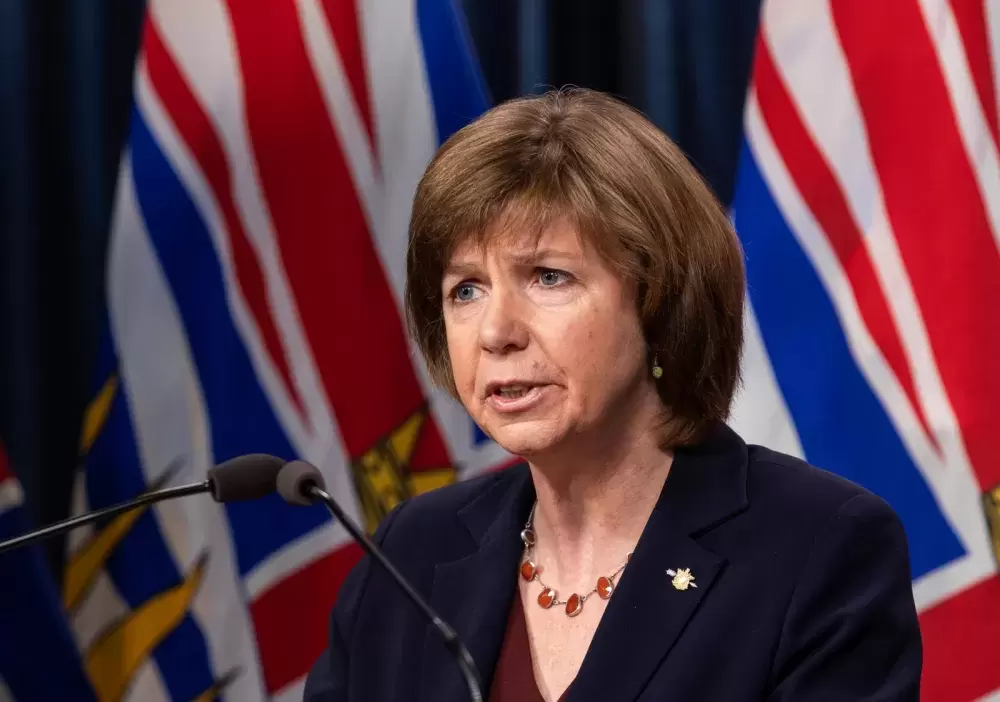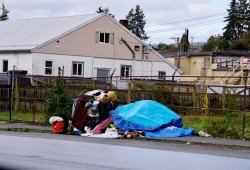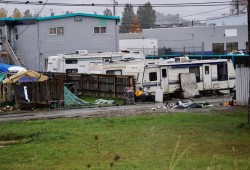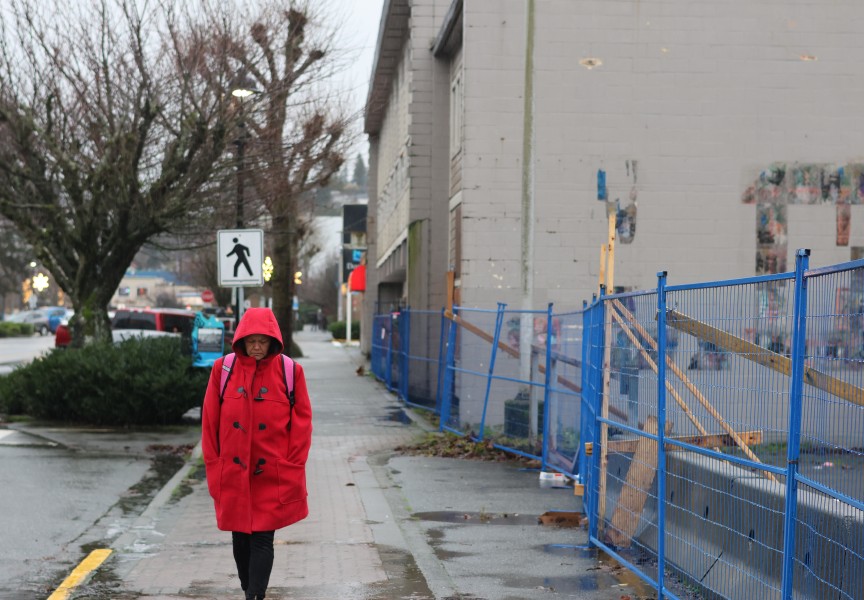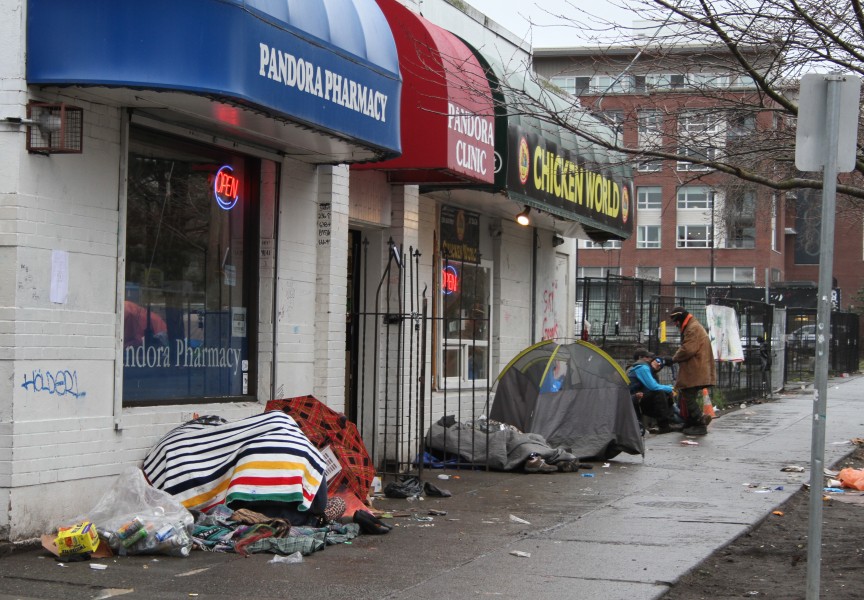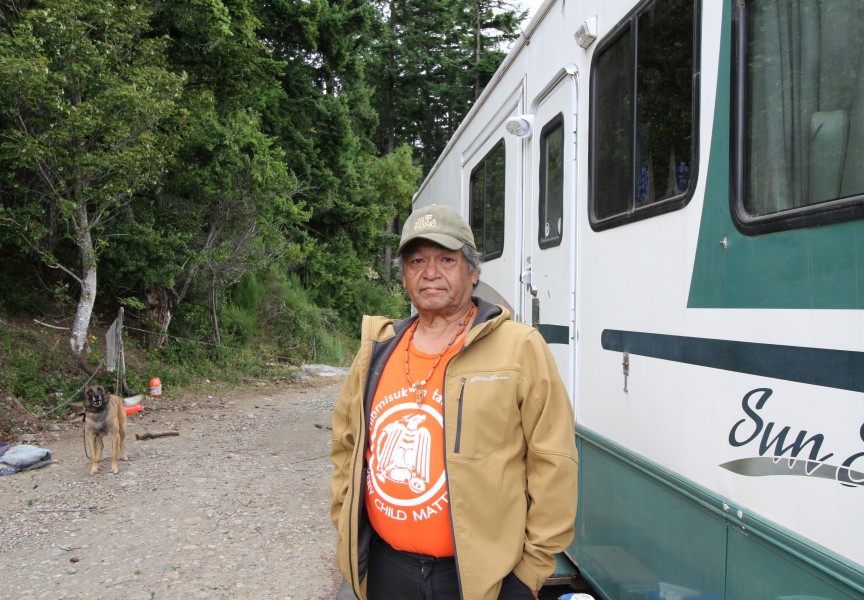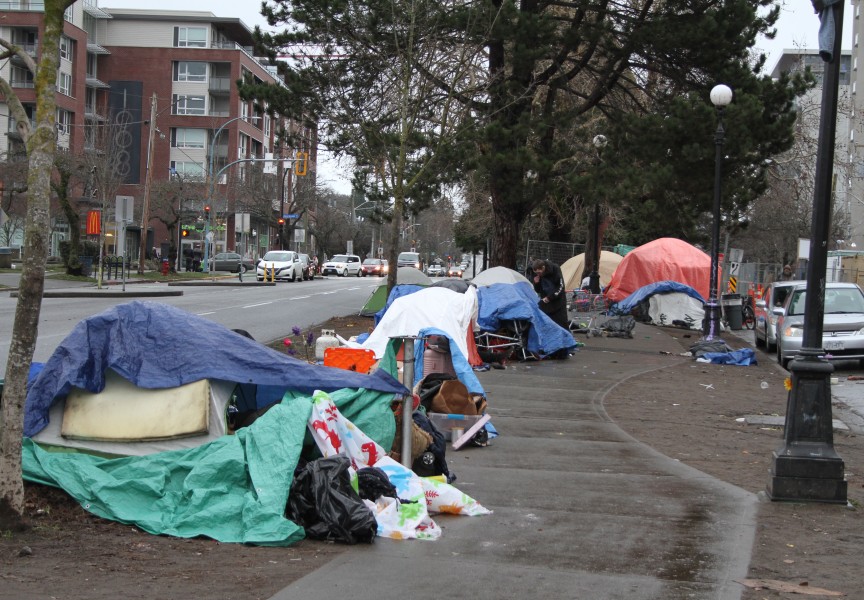The Province of British Columbia’s 2022 budget makes big investments in responding to and preventing homelessness across the province.
Investments include new complex-care housing, rent supplements and extending support for youth aging out of care until age 27.
The province has announced their goal to address homelessness by preventing individuals from becoming homeless in the first place. On March 17, David Eby, B.C.’s attorney general and minister responsible for housing, said at a press conference that there’s a housing crisis in the province and a serious affordability problem that has been magnified by the Covid-19 pandemic.
“In our most recent homeless counts, many communities saw either a small increase or a large increase in homelessness and we need to do more,” Eby said. “One of the key opportunities for government is to move upstream to identify the feeders into homelessness and to intercut those feeders, so people don’t become homeless in the first place - or if they are homeless, they’re homeless for as short a period of time as possible.”
To address the homelessness issue across B.C., the province has committed the largest housing investment in B.C.’s history—$7 billion over a decade.
“Overall there is $633 million in the budget to expand services and quickly help people experiencing homelessness secure stable housing,” Eby said. “This incudes $264 million over three years to ensure the approximately 3,000 people that came indoors during the pandemic to temporary housing will have permanent and stable housing,”
Eby added that the budget also includes a new supported rent supplement program.
“This is a $600-per-month supplement for families and individuals that also gives them access to integrated health and social supports, health care, food services and employment training,” Eby said. “This will assist up to 3,000 households over the next three years. All of this will support the ongoing work happening to develop our provincial homelessness strategy.”
The province is also developing a cross-government homelessness strategy that will respond to the issue throughout B.C. and work to prevent it. A first-of-its-kind report on homelessness will give better information to help target provincial programs and services to improve supports for people experiencing homelessness, as well as help prevent people from becoming homeless. The strategy will be released this year.
The project compiled and analyzed data on homelessness from provincial employment assistance, shelter and health programs. The report uses anonymized provincial data from 2019 to create a reliable picture of people experiencing homelessness, including the community where they lived and whether their homelessness was short-term or chronic.
The province has previously only had data on homelessness from community homeless counts that provided a snapshot of the phenomenon at a particular point in time in 25 B.C. communities, including Port Alberni, but these were known to be undercounts. This new data project allows B.C. to count people experiencing homelessness who have always been a part of B.C. communities but were previously difficult to count through community homelessness counts.
The data will be collected and reported each year to provide information on trends and ensure solutions to homelessness.
The 2020/2021 count for Port Alberni recorded 125 individuals experiencing homelessness, compared to 147 in 2018. Sixty-five per cent of those respondents identified as Indigenous and 88 per cent disclosed they were suffering from addictions.
The province’s 2022 budget will also include $164 million over three years to build 20 complex care housing projects serving 500 people across B.C.
“It’s a ground-breaking approach to address the needs of people with overlapping mental health issues, substance use, trauma and often a brain injury,” said Sheila Malcolmson, minister of Mental Health and Addictions, at the press conference. “Complex care housing will help people beyond supportive housing… complex care housing is voluntary, it’s delivered through health authorities and it delivers direct connections to treatment and specialized care. This is another important step to prevent homelessness.”
Todd Patola, president of the Canadian Mental Health Association Port Alberni, said the increasing cost of rental housing is creating a widening gap in the budgets of low-income individuals and youth as they seek suitable rental accommodation within the Alberni Valley.
Patola said the B.C. government’s announcement to address homelessness is a positive step forward and indicates the province has a desire to solve the societal issues of homelessness and poverty.
“The greatest benefit to Port Alberni's homeless population will be an opportunity to obtain safe, clean and appropriate housing,” Patola said. “The commitment to providing complex care facilities is central to the success of any policies regarding homelessness. Such a facility in Port Alberni could be the one, most important factor in addressing homelessness. We eagerly hope that such a facility will be announced for Port Alberni as soon as possible.”
Patola added that rent supplements could assist in keeping people from losing the stability they currently have and provide a foundation from which they can more safely live within the community.
“This includes not only affording a rapidly increasing monthly rental cost, but also associated costs such as heat and electricity,” Patola said. “Along with financial assistance, it is positive to see the B.C. government is also recognizing functional needs within the community by providing health and social supports to assist people in a holistic environment.”
Wes Hewitt, executive director with the Port Alberni Shelter Society, said the province’s announcement to provide rent supplements is an “excellent move” and will help to get low-income individuals and families into market housing.
“There are individuals that don’t need supportive housing, they can go into market rentals with support,” Hewitt said. “[Rent supplements] opens up the opportunity for these individuals right now. To build housing for them takes a minimum of two years, so this is an immediate solution. The other side of that is we don’t have an abundance of rental housing to begin with, there are a bunch of buildings planned and being built but that’s going to take time for them to open up.”
Hewitt said he’s noticed more people in the community at risk of homelessness because of increasing rent costs, including seniors who are on a fixed income. He said he’s happy to see the province’s commitment to address homelessness in a proactive way.

